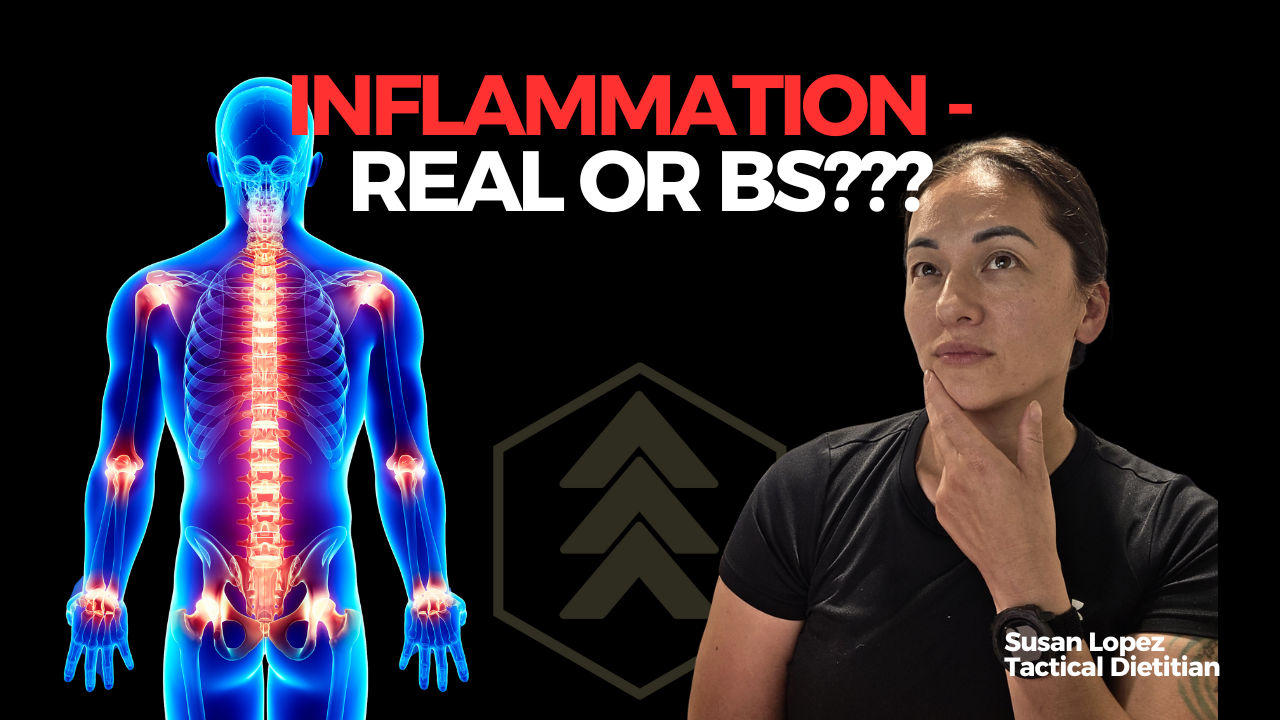Inflammation - BS or Real?
Aug 28, 2025
Why should you care about inflammation?
Inflammation gets thrown around as a buzzword everywhere in health, fitness, and even in supplement ads. Some people dismiss it, others blame it for everything. The truth is more nuanced. Inflammation is real, and depending on the type, it can either be protective or quietly destructive.
Acute vs Chronic Inflammation
Acute inflammation is short term and necessary. It happens with exercise, injury, or when your immune system is fighting off pathogens. Acute inflammation signals cells to repair, increases blood flow, mobilizes white blood cells, and keeps you alive. This is normal and healthy.
Chronic inflammation is different. It is less severe but drags on over time and often goes unnoticed until it starts showing up in lab work or in symptoms. What is actually happening during chronic inflammation?
Lipids in your blood can stimulate a pro-inflammatory response. Hormones and immune system signaling become disrupted. Cholesterol itself is not the villain it is often made out to be. Cholesterol is essential to produce hormones like testosterone, which plays a powerful anti-inflammatory role in addition to everything else it does. Chronic inflammation is really about disrupted metabolism. It is that low level fire burning in the background that never turns off.
Why this matters for high performers -
Chronic inflammation is linked to diabetes, high blood pressure, cardiovascular disease, and other metabolic issues. These are inflammatory diseases. The tactical and athletic communities are not exempt. Firefighters, military, law enforcement, and endurance athletes often push their bodies in ways that mask what is happening under the hood. Stress, lack of sleep, occupational hazards, and extreme training all add fuel to the fire.
Here is the good news. Even with family history, most of these conditions are preventable. The bad news is that there is no magic pill or supplement that can fix inflammation. Do not fall for the fear mongering online from influencers that sells detoxes or quick fixes. Supplements may play a small role, but the only proven way to lower chronic inflammation is through lifestyle changes.
But Susan, I train and eat clean. Why are my labs still off?
I hear this constantly from athletes and tactical professionals. You work out, you fuel well, but your labs come back showing elevated LDL cholesterol, triglycerides, or CRP. This is not uncommon. Chronic inflammation is influenced by more than just training and diet.
Obvious contributors to inflammation include carrying excess body fat, being sedentary outside of training, eating a poor diet, drinking alcohol, and getting inadequate sleep.
The less obvious contributors matter too. Family history means you may need deeper testing like NMR lipoproteins, fasting insulin, and LP IR scores. Some people are simply more reactive to negative stimuli and need closer monitoring. Stress is a major driver and not just mental stress. Physiological stress can increase gut permeability and activate the immune system. Under recovery is another common issue. Training too hard without enough recovery only keeps stress hormones elevated. Dysbiosis in the gut, often caused by stress, antibiotics, or certain medications like beta blockers and statins, can disrupt the microbiome and lead to bacterial overgrowth. This can occur not just in the GI system but also in the oral and spinal areas of the body.
How to take control and lower inflammation
The first step is to get tested. Labs to consider include lipids, NMR, fasting insulin, homocysteine or CRP, IGF-1, sex hormone profile, and GI mapping for gut-related issues.
The second step is to get your labs interpreted by the right professional. Not all physicians or dietitians look at labs through the lens of performance and longevity. Seek out someone with training in functional or integrative medicine who understands how these markers connect to your metabolism and recovery.
The third step is to invest. This may mean money, but it also means time and effort. The majority of tools you need are free: moving daily, managing stress, getting enough sleep, and fueling properly. Accountability may be worth investing in if you want results that last.
The fourth step is to address the four big pillars. Physically, focus on body composition, building muscle, reducing excess fat, and improving respiratory fitness through cardiovascular conditioning and VO2 Max training. Nutritionally, prioritize fiber, gut health, and supplements that have evidence-based support rather than hype. Protect your sleep like it is your most valuable asset, because it is. Learn to manage stress and build resilience rather than living in constant overdrive.
The bottom line
Inflammation is not BS. Acute inflammation is protective and necessary, but chronic inflammation is damaging and can shorten both lifespan and health span. First Responders, firefighters, and operators are just as vulnerable as sedentary individuals, sometimes more so because stress loads are higher.
The path forward is clear. Test, do not guess.
Get your labs done, work with someone who can interpret them properly, and put the results into action. Lifestyle is the foundation. Nutrition, sleep, stress, and recovery are the levers that will lower inflammation, improve VO2 Max, protect heart health, and extend your performance over a lifetime.